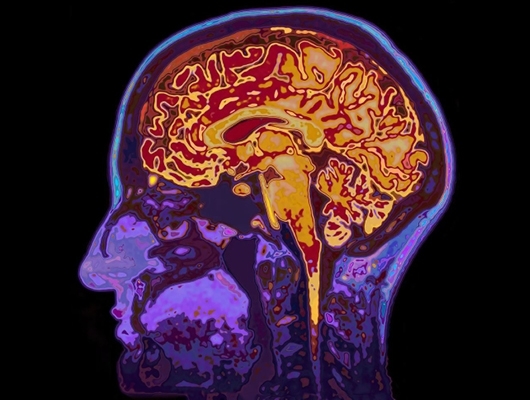Everyone needs sleep, but its biological purpose remains a mystery. Sleep affects almost every type of tissue and system in the body – from the brain, heart, and lungs to metabolism, immune function, mood, and disease resistance.
Recent findings suggest that sleep plays a housekeeping role that removes toxins in your brain that build up while you are awake. And we know for certain that a chronic lack of sleep, or getting poor quality sleep, increases the risk of disorders including high blood pressure, cardiovascular disease, diabetes, depression, and obesity.
Sleep has the power to define the course of our day, so why not learn to sleep better?
Defining “normal” sleep.
Dr. Andrew Lim, investigator at ONDRI and scientist at Sunnybrook Health Sciences Centre, describes normal sleep as the ability to fall asleep relatively easily within half an hour, waking up no more than twice a night, getting anywhere between six and a half to nine hours of sleep per night, and being able to make it through the day without napping.
Why normal sleep is important.
Most of us can speak anecdotally about how we feel when we don’t get enough sleep. Dr. Lim reinforces those crummy feelings, noting that sleep not only supports our ability to stay focused and pay attention, but also impacts our overall mood. Furthermore, sleep plays an important role in clearing waste products – so if you don’t sleep properly, you have impaired clearance. “Sleeping poorly doesn’t just make us feel bad, it makes us perform poorly, makes our conversation worse, our mood worse,” says Dr. Lim. “Even just a few nights of bad sleep have short-term impacts.”
Prioritizing good sleep habits.
Shelly is a retired mental health lawyer and member of ONDRI Patient & Community Advisory Committee. She lives with anxiety and is also a caregiver for her mother who has dementia. Recently, Shelley found herself waking in the middle of the night with acute anxiety, causing her to remain awake and unable to fall back asleep. Shelley took action and picked up daily yoga practice as well as seeking out a treatment called “progressive muscle relaxation”. This helped to address her anxiety, which translated to better sleep.
Dr. Penny Corkum is a child psychologist and principal investigator for Better Nights, Better Days – an online program for parents supporting positive sleep habits for children. She says the best thing that parents can do is make sure they adhere to not only a regular nighttime routine, but a regular schedule during the day as well with lots of outdoor time and physical activity. Also important, monitor screen-time, “Screen-time, especially right before bed, directly impacts quality of sleep,” says Dr. Corkum.
Sleep across the lifespan.
Dr. Corkum shared the results of a recent study that detailed the impact of removing an hour of sleep from a randomized group of children in comparison with another group who stayed with a consistent sleep schedule. The results were eye-opening (excuse the pun); even losing just one hour of sleep had an effect on behaviour, attention, ability to regulate emotions, and learning comprehension. Dr. Corkum also noted that missing an hour of sleep each night over even just a few days took a toll on overall mood levels – where when waking, children would see the world as a “little less positive”.
As we age, changes in sleep can indicate possible health issues – such as dementia. “Sleep changes can be an early feature of dementia,” explains Dr. Lim. “And sleep problems can also be one of the more troubling symptoms of dementia – and can drive a lot of the care needs in the later stages of dementia.”
In terms of care needs, those needs are often addressed by the primary care giver. In Shelley’s mother’s case, this support comes from Shelley’s father. “When my mother sleeps well, my father gets rest and respite – which is needed for his mental health and allows for him to have a bit of a reset to provide better care. Sleep is important to the quality of life for both my parents.”
The full discussion can be found on our YouTube channel here.


